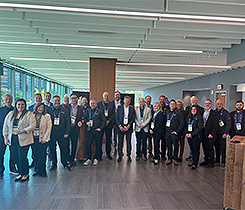Court allows expert opinion that goes against earlier testimony in case
There are fact witnesses, physical evidence and expert testimony in the form of opinion. Experts are asked to look at the facts of the case and analyze the evidence. They perform testing on occasion and apply codes and standards in the area of their expertise to explain to a jury what happened.
From time to time, experts arrive at opinions that are inconsistent with those provided by the fact witnesses or eyewitnesses. When this happens, parties often attempt a legal maneuver prior to trial to prevent the jury from hearing this testimony. This is known as a motion in limine. It is a legal argument to the judge prior to the trial in front of a jury asking that the expert opinion be excluded, as it is not in keeping with the fact or eyewitness testimony in the case. Parties find out what the experts will say through written disclosures and often in depositions that take place before trial.
In a July decision issued in the 6th U.S. Circuit Court of Appeals, Lee v. Smith & Wesson, this exact issue was addressed.
This case involved an accident involving a revolver being used by the plaintiff. The plaintiff, who received injuries to his face from the accident, testified that he had fired the gun three times without any problems. He said the gun had properly closed each time. His expert essentially said he was not correct and the gun had not properly closed before the last time he fired it. So the injury he incurred was from the gun misfiring.
Opposing counsel moved via motion in limine to prevent this expert testimony at trial, and the trial judge granted this motion. As a result, the injured party could not prove his case. Through various legal steps, the case ended up in the appellate court, which reversed the ruling and allowed the expert testimony to be presented to the jury.
In its opinion, the court ruled: A party is not precluded from proving his case by any relevant evidence even though that evidence may contradict the testimony of a witness previously called by him.
The court did require that the expert be qualified to provide the opinion. This means he must be an expert in the area in which the opinion is being given. The basis for the opinion must also be based on reliable methods. In other words, it must be more than guesswork. It must have sound scientific support. Finally, there must be some physical evidence that could support the expert opinion.
In the Lee case, some of the eyewitnesses to the plaintiff’s injury said the gun had misfired and explained in ways that supported the expert opinion. Evidentiary support can come from physical evidence, testing and witness testimony.
The court also said that an expert opinion couldn’t be based on “facts no jury could accept or relies on rejection of facts that any jury would be required to accept.” This rule seems to limit experts from opinions that cannot be supported by any reasonable interpretation of the evidence or scientific testing that may occur.
In many cases, analysis of the evidence and relevant testing of theories lead our experts to opinions that differ in some ways with the facts presented by our client and the opposing parties.
My experience in the propane industry is that often the plaintiff explains how an accident occurs or our delivery guy or service guy testifies to what he thinks occurred to cause an accident or what they did leading up to an accident. An expert can disagree with the injured plaintiff or even our own employees’ version of events to explain what happened, as long as the expert has some reasonable factual or scientific evidence to support that opinion.
So provided there is a basis to support these differing opinions, this case demonstrates that courts will allow these opinions to be presented to the jury. In fact, the court said to exclude this type of expert testimony would be an abuse of discretion by the trial judge.
John V. McCoy is with McCoy Leavitt Laskey LLC, and his firm represents industry members nationally. He can be reached at 262-522-7007 or jmccoy@MLLlaw.com.
















